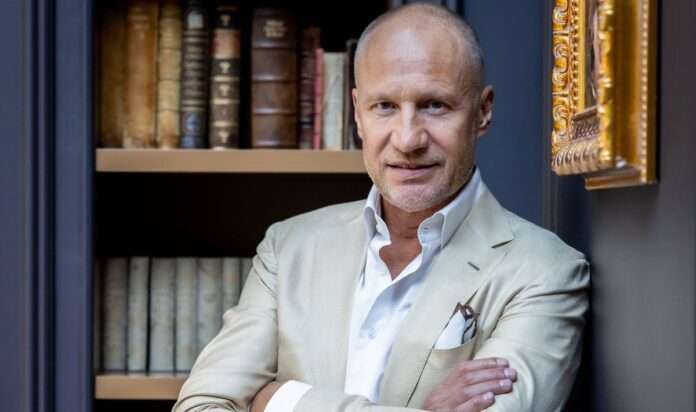It is imperative that we open our eyes and acknowledge the reality that, despite Alexei Navalny’s selfless dedication to his vision, even to the extent of fatally risking his life, he remains a marginal figure in Russia. Contrary to the Western portrayal of him as a competitor to Putin, Navalny’s support among the Russian population does not exceed 5%. In contrast, without any manipulation, a significant 85% of Russians express support for Putin in his stance against the West.
We must unfortunately comprehend that Putin is perceived as a hero and a representative of God by ordinary Russians, while the West with its human rights is viewed as an evil satanic threat. And to make matters worse, the more we attempt to pressure Russia with economic sanctions, the stronger it becomes. Hardship only feeds this beast. Pain, even just useless pain, only unites the Russian people further in support of Putin, who is seen as defending them against Western influence. This factor was greatly misunderstood by everyone who had an armed conflict with Russia. And this misunderstanding has always had a very high price tag in military history.
Western society often overlooks this crucial truth: pressuring the Russian people only strengthens their unity around their leader and intensifies their resistance. In my opinion, this aspect of Russia is greatly ignored in our strategies for defeating Russia. So far, the results have been quite the opposite. I believe it is high time we adjust our strategies and start to listen to those who truly understand Russia instead of relying on self-proclaimed experts in the Western media. Instead, we must explore entirely new perspectives, which will be explored in future writings.
Turning our attention to our situation in Estonia, where, for the past 30 years, we have neglected the 300,000 Russians living among us. These Russians are living in an ideological echo chamber, imprisoned by the toxicity of Russian media – fully absorbing content exclusively from Russia and watching Russian TV stations, resulting in the majority of Russians in Estonia wholeheartedly supporting Putin and his aggressive policies.
It is crucial to recognize that a full-scale Russian military invasion might not be an immediate threat, given Russia’s current capabilities. However, the true clear and present danger lies in the potential emergence of covert agents (in local slang rohelised mehikesed) suddenly appearing in eastern Estonia. In collaboration with them, it is foreseeable that out of the 300,000 Russians, twenty or thirty thousand young men can be persuaded to take to the streets to fulfill Putin’s visions of a Greater Russia.
Neither bunkers on our eastern border, nor planes, nor military tanks can effectively counter a hybrid war. This threat will manifest within our nation, and this fifth column of the Russian army may engage in unexpected actions.
Such a future scenario is considerably more plausible than a direct military invasion of a NATO member state. Understanding Putin’s strategic cunning, we must anticipate that if circumstances in Ukraine do not favor him, he may divert attention by stirring trouble in Russia’s border countries./Meelis Lao/
Eesti Eest! Newspaper delivers curated news that cut through the censorship, mainstream bias, and institutional dominance that has left society divided and misinformed. The platform allows readers to access the news that matters, particularly when it is being ignored. Updated minute-by-minute with news coverage from a diversity of publications and topics. The website may display, include, or make available third-party content (including data, information, applications, and other products, services, and/or materials) or provide links to third-party websites or services, including through third-party advertising (“Third-Party Materials”). You acknowledge and agree that Eesti Eest! is not responsible for Third-Party Materials, including their accuracy, completeness, timeliness, validity, copyright compliance, legality, decency, quality, or any other aspect thereof. Eesti Eest does not assume and will not have any liability or responsibility to you or any other person or entity for any Third-Party Materials. Third-Party Materials and links thereto are provided solely as a convenience to you, and you access and use them entirely at your own risk and subject to such third parties’ terms and conditions. This Agreement is governed by and construed in accordance with the internal laws of the State of Delaware without giving effect to any choice or conflict of law provision or rule. Any legal suit, action, or proceeding arising out of or related to this Agreement shall be instituted exclusively in the federal courts of the United States or the courts of the State of Delaware. You waive any and all objections to the exercise of jurisdiction over you by such courts and to venue in such courts. The Content and Services are based in the state of Delaware in the United States and provided for access and use only by persons located in the United States. You acknowledge that you may not be able to access all or some of the Content and Services outside of the United States and that access thereto may not be legal by certain persons or in certain countries. If you access the Content and Services from outside the United States, you are responsible for compliance with local laws. All information on this site is intended for entertainment purposes only.
Contact us: [email protected]
Eesti Eest!







